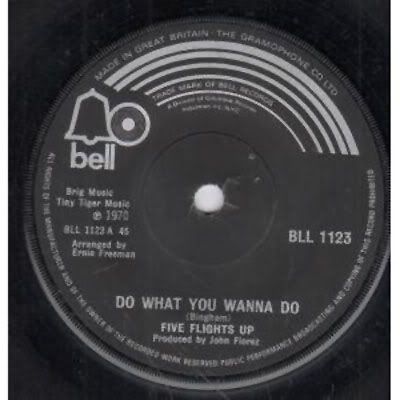A whole variety of other singles were issued, including the top ten hits "Sweet Inspiration" and "(Blame It) On The Pony Express", shortly before this one was issued to public indifference. Your eyes aren't deceiving you - it is indeed a soulful rendition of the Dylan/ Byrds classic, complete with sweat, intensity and a great big brassy horn section. On first listen, it sounds frankly unnatural and absurd. So much is done to deviate from the original tune and arrangement during the introductory seconds in particular that it's hard to even hear what it has in common with Dylan's song, and it's only when a chipper version of the chorus kicks in that you're able to connect the dots. By the second listen, however, it's a pure joy to listen to, a cover version attempted in the spirit of all the best ones, using the original track as a springboard for different arrangements rather than a score to idly copy from. Some may scream "Sacrilege!", but it's actually no more or less of a deviation from Dylan's first recording than The Byrds attempted.
The fun doesn't stop there, either. The B-side "Soul Sahara" is a thing of wonder, with Johnson whooping and hollering his way through a funky backbeat and horn section as he forcefully takes us through a history of that thing we call soul, with all its accompanying sub-genres. That neither side seems to get played very often in clubs (unlike the group's hits) is a missed opportunity in my book - "Soul Sahara" has such a furious insistence that it's impossible to stay still while it's playing, whereas "Tambourine Man" is a wonderful talking point.
And all this gets me wondering - has there ever been a song which has attracted a more varied array of covers than "Mr Tambourine Man"?
A whole variety of other singles were issued, including the top ten hits "Sweet Inspiration" and "(Blame It) On The Pony Express", shortly before this one was issued to public indifference. Your eyes aren't deceiving you - it is indeed a soulful rendition of the Dylan/ Byrds classic, complete with sweat, intensity and a great big brassy horn section. On first listen, it sounds frankly unnatural and absurd. So much is done to deviate from the original tune and arrangement during the introductory seconds in particular that it's hard to even hear what it has in common with Dylan's song, and it's only when a chipper version of the chorus kicks in that you're able to connect the dots. By the second listen, however, it's a pure joy to listen to, a cover version attempted in the spirit of all the best ones, using the original track as a springboard for different arrangements rather than a score to idly copy from. Some may scream "Sacrilege!", but it's actually no more or less of a deviation from Dylan's first recording than The Byrds attempted.
The fun doesn't stop there, either. The B-side "Soul Sahara" is a thing of wonder, with Johnson whooping and hollering his way through a funky backbeat and horn section as he forcefully takes us through a history of that thing we call soul, with all its accompanying sub-genres. That neither side seems to get played very often in clubs (unlike the group's hits) is a missed opportunity in my book - "Soul Sahara" has such a furious insistence that it's impossible to stay still while it's playing, whereas "Tambourine Man" is a wonderful talking point.
And all this gets me wondering - has there ever been a song which has attracted a more varied array of covers than "Mr Tambourine Man"?



